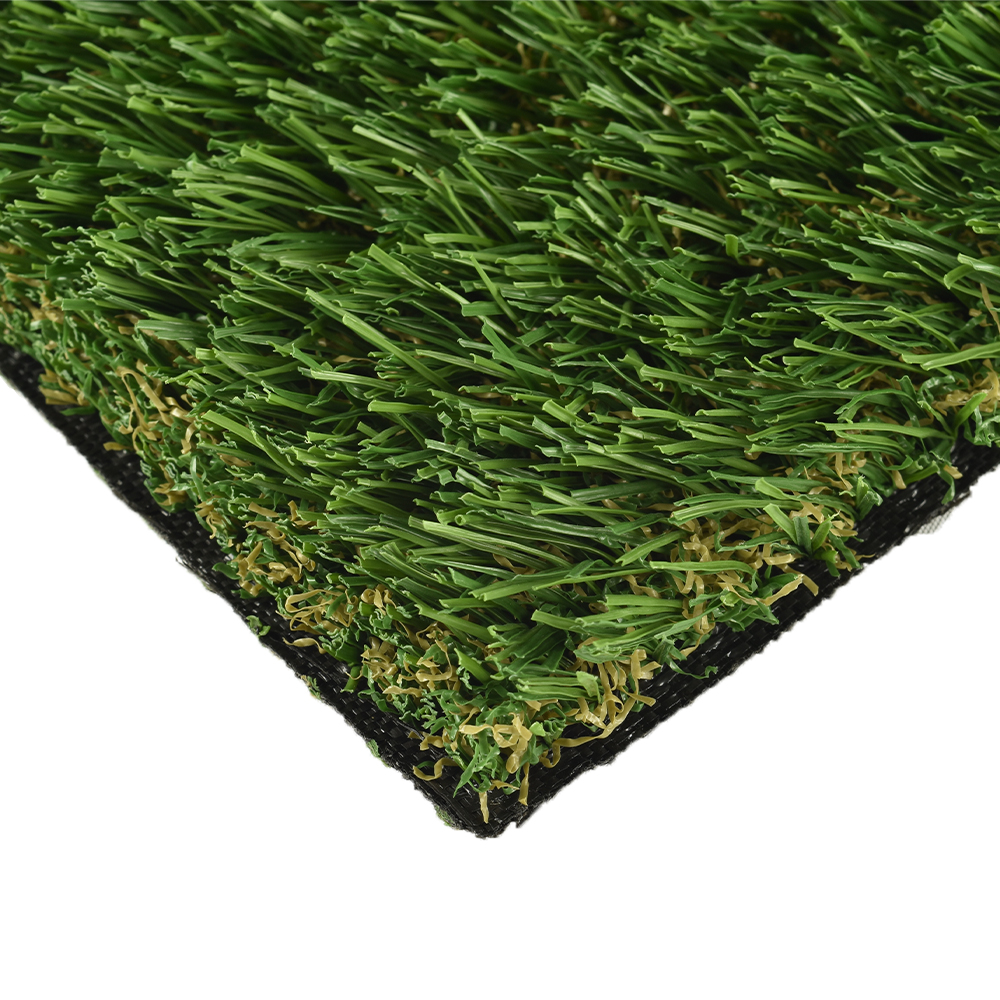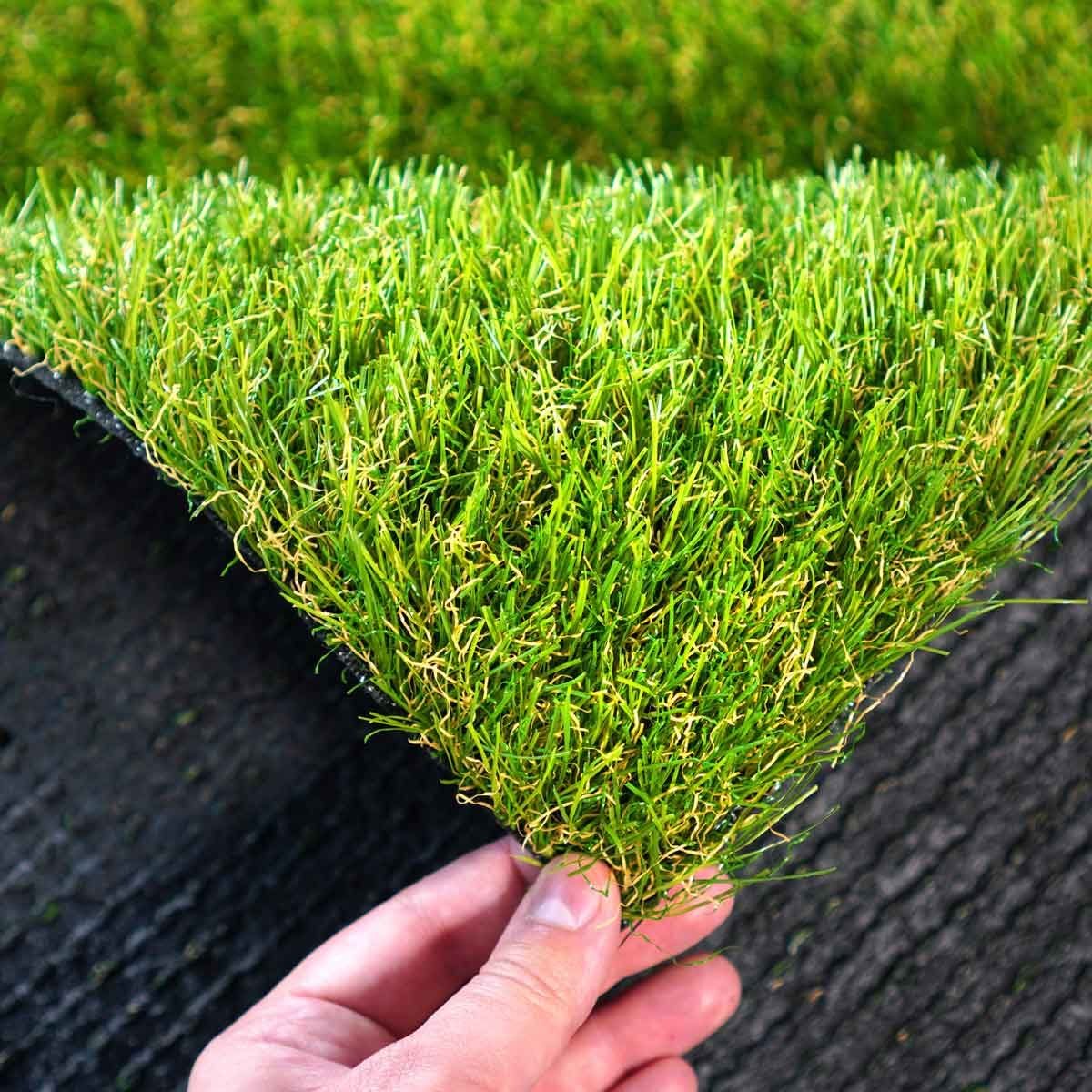Weather-Resistant Arizona Artificial Turf for Residential and Commercial Applications
Weather-Resistant Arizona Artificial Turf for Residential and Commercial Applications
Blog Article
Explore the Environmental Advantages of Opting for Artificial Lawn Solutions
The adoption of synthetic grass options provides a compelling chance to attend to pressing environmental obstacles. By dramatically lowering water usage and minimizing the application of unsafe chemicals, these choices not only advertise sustainable landscaping but additionally protect regional ecological communities. Additionally, the lower carbon impact related to lowered upkeep activities contributes to a much more sustainable strategy to land monitoring. The effects of these benefits extend beyond mere preservation efforts, increasing inquiries regarding their long-term effect on habitat conservation and total eco-friendly balance. Discovering these measurements exposes a complicated interaction worth thinking about.
Water Preservation Benefits
One of the most significant benefits of fabricated lawn is its capacity to save water. In comparison, fabricated lawn does not require watering, considerably decreasing the overall need for water sources.
By removing the demand for normal watering, man-made lawn contributes to sustainable landscape methods and helps alleviate the environmental effect of too much water consumption. The preservation of water expands to the reduction of overflow, which can lead to soil erosion and river contamination.
Additionally, the installation of synthetic grass permits homeowners and districts to designate water resources extra effectively, concentrating on crucial usages such as drinking water and farming. The change towards fabricated lawn not only advertises liable water use but also lines up with more comprehensive ecological objectives targeted at maintaining natural deposits.
As areas progressively prioritize sustainability, the water preservation advantages of man-made grass present a compelling case for its adoption in commercial and residential landscape design tasks.
Minimized Chemical Use
The transition to synthetic grass substantially reduces the dependence on chemical treatments commonly used in natural yard maintenance. Traditional lawn monitoring generally includes the application of plant foods, chemicals, and herbicides to promote growth and control bugs. These chemicals can pose risks to human wellness, neighborhood wild animals, and the atmosphere, contributing to soil and water contamination.
On the other hand, artificial turf eliminates the need for these hazardous substances. When mounted, it requires marginal maintenance, primarily containing normal cleansing and irregular infill replenishment. This decrease in chemical use not just benefits the immediate atmosphere yet likewise adds to more comprehensive ecological security. By minimizing the release of artificial compounds into the ecosystem, synthetic grass advertises much healthier dirt and water systems.
Furthermore, the absence of chemical drainage connected with artificial grass setups helps safeguard regional waterways from pollution, supporting marine life and maintaining biodiversity. Turf installation phoenix az. As neighborhoods increasingly prioritize lasting methods, going with man-made turf presents a feasible service that lines up with environmental preservation goals. Via this shift, homeowner can enjoy rich eco-friendly rooms without compromising eco-friendly health and wellness, leading the way for a more sustainable future
Lower Carbon Impact

Moreover, the installation of synthetic grass can cause significant water conservation. Natural lawns call for significant quantities of water for watering, which not just contributes to the carbon impact connected with water removal and therapy however additionally pressures neighborhood water resources. On the other hand, synthetic grass needs marginal maintenance, calling for no watering, thus significantly decreasing water usage and its associated energy costs.
Additionally, the longevity of fabricated lawn adds to its lower carbon impact. With a life expectancy of approximately 15 years or more, the requirement for regular substitutes is reduced, resulting in less waste and lower power usage in manufacturing and taking care of typical yard choices. Overall, synthetic grass presents a sustainable choice for environmentally mindful landscaping.
Habitat Preservation
Habitat preservation is a vital factor to consider in the argument over landscaping choices, especially when contrasting fabricated turf to natural lawn. All-natural yard yards often call for extensive maintenance, consisting of the use of plant foods, herbicides, and chemicals, which can detrimentally impact neighborhood environments. These chemicals can seep into the soil and waterways, damaging indigenous vegetation and fauna and interfering with neighborhood environments.
Fabricated grass eliminates the requirement for dangerous chemicals, consequently protecting neighboring wildlife and preserving the honesty of bordering ecosystems. The setup of man-made turf can lead to the conversion of former grass locations right into more biodiverse landscapes, such as pollinator gardens or indigenous plant areas, which can sustain neighborhood wild animals.
Eventually, the change to synthetic grass not just conserves water and lowers maintenance efforts yet likewise cultivates an extra harmonious relationship between human activities and the natural surroundings, promoting habitat preservation in the process.
Long-Term Sustainability
Long-lasting sustainability is an essential consider reviewing the advantages of artificial lawn over standard turf yards. One of the most significant advantages of synthetic grass is its durability; it this link can last up to 15-20 years with very little maintenance, whereas all-natural turf requires regular reseeding and substitute. This long life decreases the need for continuous resources, such as water, fertilizers, and chemicals, which are essential for maintaining a healthy and balanced turf yard.
Additionally, synthetic grass contributes to a reduction in carbon emissions connected with lawn treatment devices. Traditional lawns usually need gas-powered lawn mowers, trimmers, and blowers, every one of which add to air pollution. Artificial turf companies phoenix. In contrast, synthetic grass eliminates the need for such devices, promoting a cleaner setting
Additionally, the production of synthetic lawn progressively utilizes recycled products, boosting its sustainability account. As suppliers take on eco-friendly techniques, the ecological footprint of man-made lawn continues to decrease.

Verdict
The fostering of man-made grass services offers substantial ecological benefits, consisting of substantial water conservation, minimized reliance on hazardous chemicals, and a lower carbon impact. Fabricated lawn help in preserving natural habitats by minimizing land disruption and promoting lasting sustainability through the usage of durable materials. Jointly, these factors highlight the potential of artificial lawn to add positively to environmental health and supply a practical choice to standard landscaping techniques in an increasingly resource-conscious world.
In contrast, fabricated lawn does not need watering, significantly reducing the total need for water sources. By minimizing see here the launch of synthetic substances right into the ecosystem, synthetic turf advertises much healthier soil and water systems.
In addition, the setup of artificial grass can result in significant water conservation. In comparison, man-made lawn needs very little maintenance, my latest blog post requiring no watering, thus significantly reducing water usage and its associated energy expenses.

Report this page